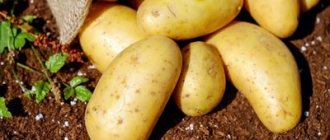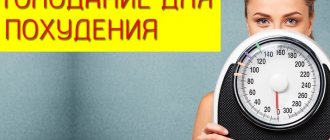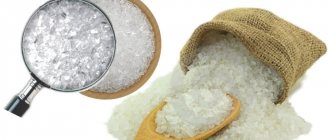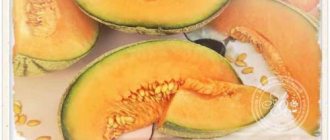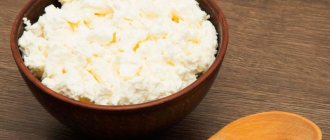Intermittent fasting is a popular form of fasting that involves cycles of fasting and eating. A number of restrictions force people to look for options to make it easier to pass this period, for example, is it possible to drink coffee during intermittent fasting?
Research shows that intermittent fasting may promote weight loss and reduce risk factors for certain chronic conditions, such as heart disease, diabetes, and Alzheimer's disease ().
If you're new to healthy eating restrictions, you may also be wondering if drinking coffee while intermittent fasting is okay.
This article explains whether it is okay to drink coffee during intermittent fasting.
Black coffee won't break your fast
Drinking moderate amounts of very low or no calorie drinks while fasting is unlikely to break your food restriction in any significant way.
This includes drinks such as black coffee. One cup (240 ml) of black coffee contains about 3 calories and very small amounts of protein, fat and micronutrients ().
For most people, the nutrients in 1-2 cups (240-470 ml) of black coffee are not enough to trigger significant metabolic changes (,).
Some people say that coffee suppresses appetite, making it easier to fast for long periods of time. However, this statement remains scientifically unproven (). In general, moderate coffee consumption during intermittent fasting is acceptable. Just make sure it's black, without any added ingredients.
Coffee may enhance the benefits of fasting
Surprisingly, coffee can enhance many of the benefits of intermittent fasting.
These include improved brain function, as well as reduced inflammation, blood sugar, and the risk of heart disease ().
Metabolic Benefits
Chronic inflammation is the root cause of many diseases. Research shows that both intermittent fasting and coffee consumption can help reduce inflammation (,).
Some studies show that higher coffee consumption is associated with a reduced risk of metabolic syndrome, which is an inflammatory condition characterized by high blood pressure, excess body fat, high cholesterol and elevated blood sugar (,).
Research has also linked coffee consumption to a reduced risk of type 2 diabetes. Moreover, up to 3 cups (710 ml) of coffee per day is associated with a 19% reduced risk of death from heart disease (, ,).
Related articles:
- Benefits of giving up coffee
- Detox programs for cleansing the body at home...
Contraindications of tea and coffee during fasting
Not everyone is allowed to fast for the purpose of losing weight; no doctor will give permission if you have the following diseases and conditions:
- pregnancy,
- insulin-dependent form of diabetes,
- treatment with antibiotics and heavy medications,
- acute inflammatory processes requiring surgical intervention,
- breast-feeding,
- anorexia and bulimia,
- cholelithiasis,
- malfunction of the liver and kidneys,
- exacerbation of gastrointestinal diseases.
Read also: How to drink polysorb to cleanse the intestines: instructions and application diagram
Hypertensive patients should not drink coffee during a short fast.
Losing weight with tea effectively restores metabolic processes if the approach to cleansing is correct and carefully prepared. It is important to enter and exit hunger correctly. The day before unloading, the diet changes; light food consists of vegetables and fruits. The output is slow with the gradual introduction of new products throughout the day. Take a walk in the fresh air on this day to prevent oxygen starvation. Before you start losing weight, find out your doctor’s opinion regarding the chosen system.
Added Ingredients May Reduce the Benefits of Fasting
While coffee on its own is unlikely to break your fast, added ingredients may.
Filling your cup with high-calorie additions like milk and sugar can disrupt intermittent fasting, limiting the benefits of this diet.
Many doctors say that you will not break your fast if you stay below 50-75 calories during each fasting window. However, no scientific evidence supports these claims.
Instead, you should consume as few calories as possible during your fast.
For example, lattes, cappuccinos, and other high-calorie or sweetened coffee drinks should be avoided during intermittent fasting.
While black coffee is the best choice, if you need to add something, 1 teaspoon (5 ml) of heavy cream or coconut oil would be a good option as they are unlikely to significantly change your blood sugar levels or overall calorie intake.
Other findings
One cup (240 ml) of coffee contains about 100 mg of caffeine ().
Consuming too much caffeine from coffee can lead to side effects including increased heart rate and a temporary increase in blood pressure ().
One study found that high coffee consumption—up to 13 cups (3.1 liters) per day—resulted in increased fasting insulin levels, suggesting a short-term decrease in insulin sensitivity ().
If you are using intermittent fasting to lower fasting insulin levels or improve insulin sensitivity, you will need to reduce your coffee intake.
Additionally, excessive caffeine consumption can impair the quality of your sleep. Poor sleep can harm your metabolic health over time, which can negate the benefits of intermittent fasting (,).
Most studies show that up to 400 mg of caffeine per day is safe for most people. This equates to approximately 3–4 cups (710–945 ml) of regular coffee per day ().
If you drink coffee while intermittent fasting, avoid high-calorie, high-sugar additives as they may break your fast.
Intermittent Fasting Options
Weight loss is allowed with any type of tea. Choose according to your taste: pu-erh, milk oolong, hibiscus and others. Each variety has beneficial properties and is highly valued in nutrition.
Green tea fasting
Green tea during fasting is a healthy product. The drink contains a composition enriched with vitamin elements: minerals, potassium, zinc, vitamins C, B, E, fluorine, etc. Tannin and cahetin have a beneficial effect on the intestines and stomach, removing heavy metals and toxins.
Read also: The effectiveness of complete intestinal lavage with an enema in case of poisoning in adults and children
Benefits of green tea fasting:
- reducing the risk of developing cancer,
- accelerated breakdown of lipids,
- strengthening the immune system,
- restoration of functions of the kidneys, central nervous system, heart, liver, blood vessels,
- cleansing internal systems,
- decrease in blood sugar levels,
- reducing the risk of plaque formation due to atherosclerosis,
- normalization and restoration of metabolic processes.
The secret of its effectiveness lies in its diuretic effect on the body. If you regularly do fasting once a week, after a couple of months your weight will be lower.
The diet lasts 1 day. In addition to tea, be sure to drink water.
The following unloading options are available:
- Apple. You are allowed to eat 1 medium-sized apple 5 times a day. Half an hour after eating, drink aromatic leafy green tea.
- Lactic. Steam the tea leaves with hot milk with a fat content of no more than 1.5%. Drink the drink warm. Milk helps fill protein needs, which prevents the breakdown of glycogen stores from muscles. This type of intermittent fasting is ideal for athletes.
- Ginger. Both products have powerful fat burning properties. Ginger has a specific taste; it is allowed to add it to green tea in an amount in which it does not cause nausea. In addition, ginger root has an aggressive effect on the stomach, irritates the walls, which can provoke the development of side effects.
If the taste of the drink is unpleasant, you can add honey. The amount of honey should not exceed 1 tsp. per 1 liter. The additive will make the drink sweeter and helps protect the body from infections and viruses.
We recommend reading
- Detox water to cleanse the body
- Is it necessary to do enemas while fasting?
- Advantages and disadvantages of Lavrova’s technique
Fasting on black tea
Drinking black tea during fasting brings positive results, but you cannot lose as much weight with it as you can with green tea. Tea leaves undergo careful industrial processing, which contributes to the loss of some of the beneficial properties. The drink relieves puffiness, invigorates, tones, and eliminates hunger.
It is allowed to add milk, cinnamon, honey and ginger to the tea drink. The ratio of proportions, as in recipes with green:
- honey 1 tsp per 1 liter,
- ginger to taste,
- milk 1:1,
- lemon 1 tsp per 1 liter,
- cinnamon on the tip of a knife for 1 cup.
You need to drink 1-2 liters of tea and water per day. The method is suitable for a gradual transition to fasting.
Read also: Fish oil and constipation
Coffee fasting
Coffee is an aromatic drink with numerous beneficial properties. It has been scientifically proven that it prevents the development of cancer and has a beneficial effect on the nervous system. After one cup, there is a surge of energy and strength. But when the grid norm is exceeded, disruption of the activity of all body systems develops.
Coffee during fasting increases the pulse rate, heart rate and increases the load on the cardiovascular system. Due to the diuretic effect, an active process of dehydration begins, and it is important to drink plenty of water after a cup of coffee. The drink washes out important microelements: potassium, magnesium, calcium, sodium. After a fasting day, it will be necessary to compensate for the deficiency with special vitamin and mineral complexes.
Fasting on coffee and water can be carried out according to the following scheme: alternately drink 3 cups of coffee and the same amount of tea. Do not add sugar, you can replace it with honey. Drink the indicated amount throughout the day. On coffee day, you are allowed to eat vegetables and fruits, except grapes, potatoes, and bananas. Drink a lot of clean water - 2-3 liters per day.
Per day, weight loss is 1-2 kilograms.
Should you drink coffee during intermittent fasting?
Ultimately, whether or not to drink coffee while fasting depends on your personal preference.
If you don't like coffee or don't currently drink it, there's no reason to start. You can get the same benefits from a healthy diet rich in whole, nutritious foods.
However, if a hot cup of black coffee makes your fast a little easier, there is no reason not to. Just remember to use moderation and don't add unnecessary ingredients.
If you find yourself drinking too much coffee or having trouble sleeping, you can shorten your fast and focus solely on it.
Drinking moderate amounts of black coffee during intermittent fasting is completely harmless. However, don't drink too much or add sugar or milk.
How to drink coffee without breaking your fast
If you don't like black coffee, you'll want to add something else to it. Be careful—many supplements will ruin your fast.
Prohibited additives in coffee
- Milk or cream . Both contain calories, so you should cut out lattes, cappuccinos and other classic dairy drinks.
- Any sugar-based sweetener . Honey, white sugar, brown sugar, agave syrup - all of these will negatively affect your fast.
- Collagen or whey protein . Although they are beneficial for the body, collagen and whey protein are prohibited during fasting.
Allowed additives in coffee
- Low-calorie sweeteners: stevia, monk fruit and erythritol.
- Cinnamon: Beneficial for controlling blood sugar and insulin levels. Plus, it contains no calories.
- Nutmeg: Another low-calorie spice that makes a great addition to your morning coffee.
- Almond milk (in small quantities). 100ml of unsweetened almond milk contains 17 calories, so a few drops in your morning coffee is unlikely to break your fast. Just don't add too much or drink multiple cups in a row throughout your fast.



